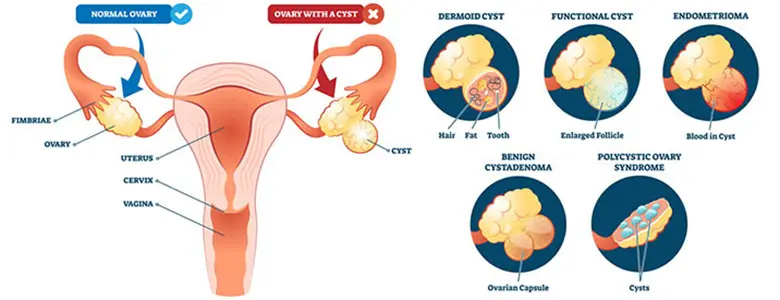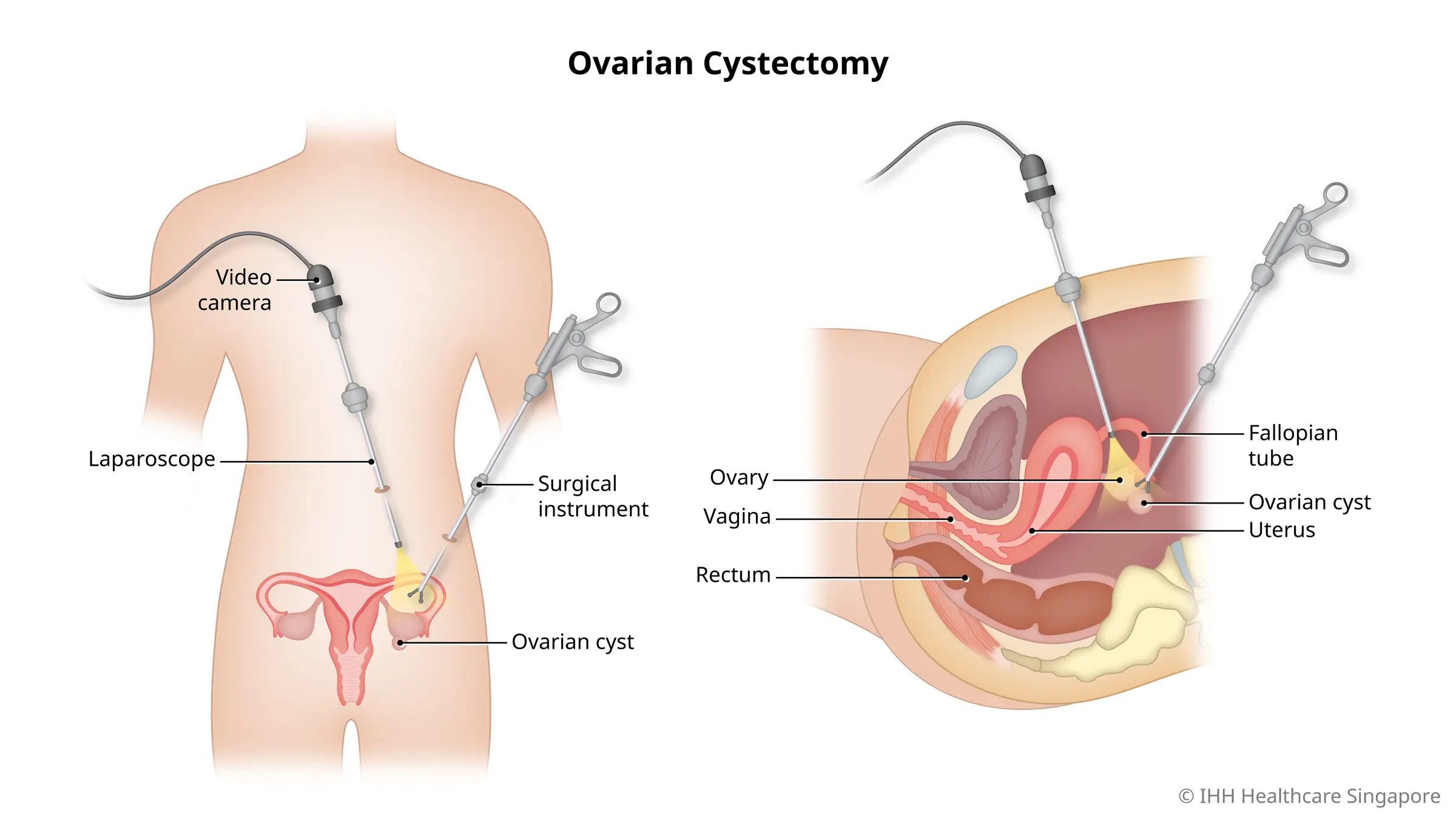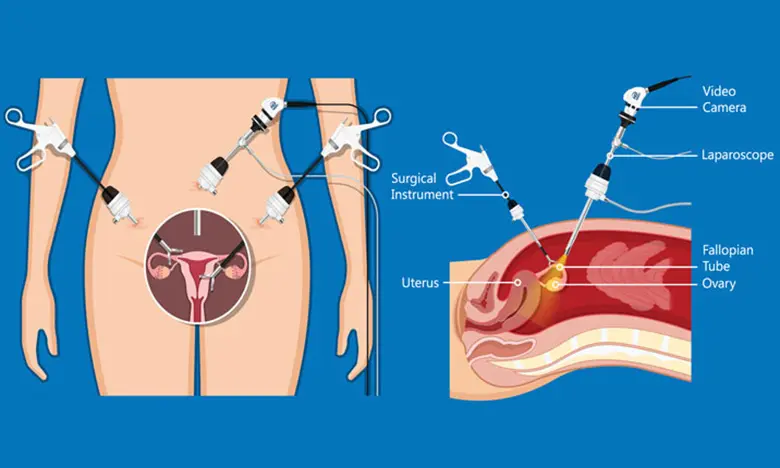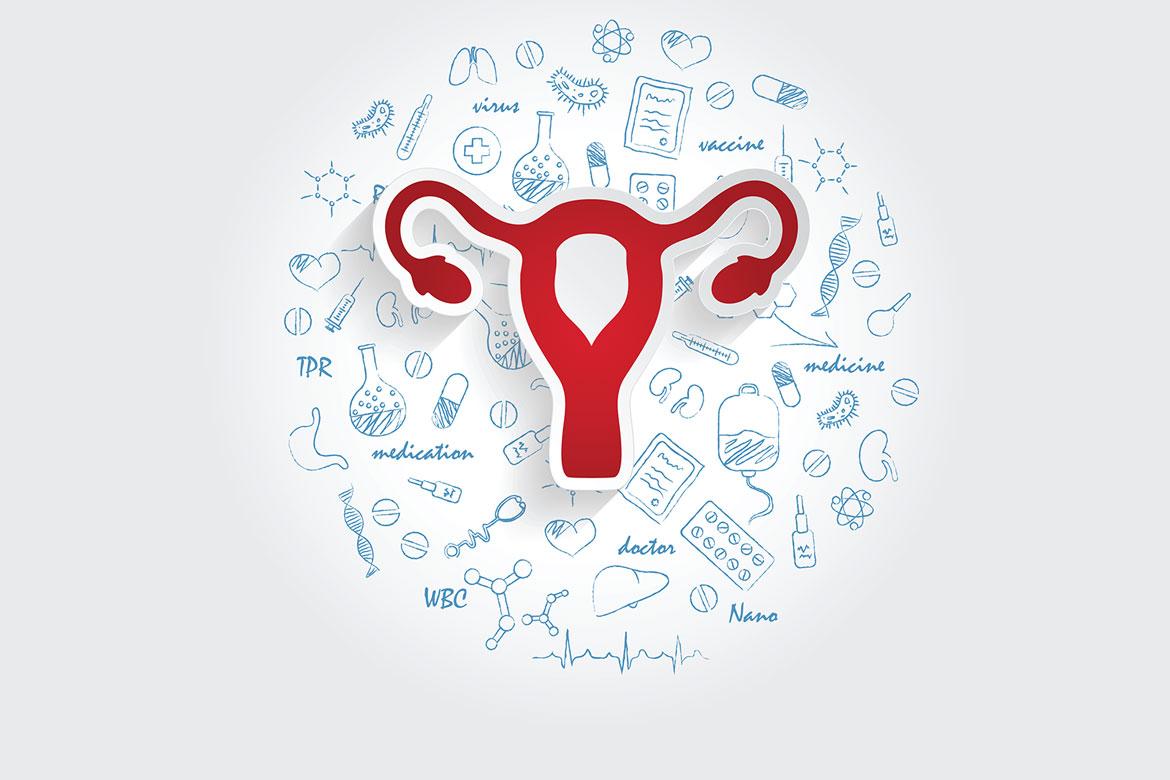Cystectomy (Ovarian Cyst Removal)
What is a cystectomy?
Cystectomy, or ovarian cyst removal, is a surgical procedure to remove a cyst (fluid-filled sac) from your ovary or its surface.
Every woman has 2 ovaries, 1 on each side of the uterus. Each ovary is about the size and shape of an almond. Your ovaries have 2 functions – to produce female hormones and eggs.
Ovarian cysts can grow in the ovary or on its surface. Your risk of developing an ovarian cyst may increase due to:
- Increase in age
- Family history of ovarian cancer
- Previous history of breast cancer
- Obesity
Many women have ovarian cysts at some point, often with no signs or symptoms. Most cysts disappear without treatment within a few months.
However, ovarian cysts can also grow and sometimes cause pain and bleeding. Persistent or symptomatic cysts larger than 5 cm may require surgery.
How it works
Ovarian cyst removal is often performed as a laparoscopic (keyhole) surgery. Laparoscopic surgery is a minimally invasive surgery that makes a few small incisions in your lower abdomen to remove the cyst.
However, if the cyst is too large or if cancer is suspected, your doctor may recommend open surgery to prevent spillage of the cyst fluid or spreading the cancer cells to other areas in the body.
Why do you need a cystectomy?
Your doctor may recommend an ovarian cystectomy if conservative management methods such as medication do not work and your cyst:
- Remains after several menstrual cycles
- Looks unusual on the sonogram
- Grows larger
- Causes pain
Cystectomy will allow your doctor to:
- Confirm the diagnosis of an ovarian cyst
- Remove a cyst that is causing symptoms
- Preserve your ovary and your fertility
- Treat conditions such as polycystic ovary syndrome (PCOS)
- Rule out ovarian cancer
What are the risks and complications of a cystectomy?
Although complications after an ovarian cystectomy are rare, the surgery carries a small risk of:
- Bleeding
- Infection
- Infertility
- Blood clots
- Recurring cysts
- Damage to other organs
These complications may make it necessary to remove 1 or both of your ovaries in future. The risk of complications increases if you have chronic diseases like diabetes or obesity. Complications are also more likely if you use certain prescription medications, drink, smoke, are pregnant, or have done previous abdominal surgery.











